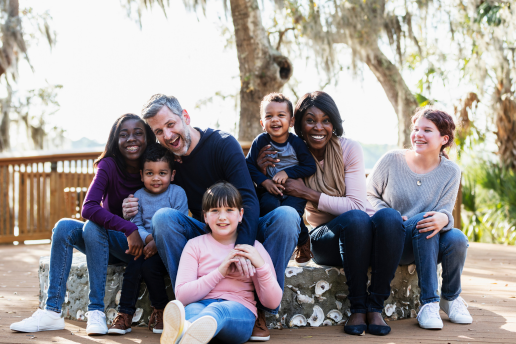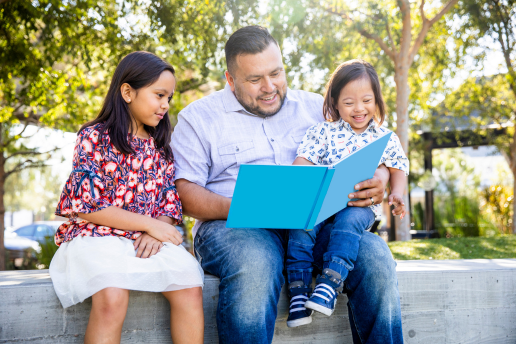 May is National Foster Care Month, a time to recognize and celebrate the important role that foster families play in the lives of children and youth in the United States.
May is National Foster Care Month, a time to recognize and celebrate the important role that foster families play in the lives of children and youth in the United States.
“We honor the courage of young people in foster care, who too often endure challenges that no child should ever have to confront, and we give thanks to the dedicated kinship and foster parents who care for them during their times of greatest need,” writes President Biden in an official White House Proclamation. “We recognize the biological parents and families of foster children who work hard to overcome difficult circumstances so they can safely reunite with their children. We also rededicate ourselves to supporting the volunteers and professionals who help America’s foster youth find temporary and permanent homes.”
Despite the selflessness and service of loving foster parents across the country, children in foster care often face an uphill battle in achieving their full potential. Many carry lasting physical and emotional scars from trauma they experienced at a young age, which can increase their risk of mental health issues or lead to substance use disorders. These challenges are magnified for children of color, who are disproportionately represented in the child welfare system: 1 in 9 Black children and 1 in 7 Native American children spend part of their childhood in foster care in the United States. Meanwhile, recent estimates suggest 30 percent of youth in foster care identify as LGBTQ+.” (whitehouse.gov)
 In Minnesota, there are over 12,00 youth currently experiencing out-of-home care. The most common reasons that children need out-of-home placement are due to parental drug abuse, allegations of neglect, and/or allegations of physical abuse. (MN DHS). When possible, we work with families to keep kids safe and meet their needs at home; unfortunately, sometimes that is not possible and it is necessary for kids to be placed in foster care. However, we are always working towards family reunification—the primary goal of foster care.
In Minnesota, there are over 12,00 youth currently experiencing out-of-home care. The most common reasons that children need out-of-home placement are due to parental drug abuse, allegations of neglect, and/or allegations of physical abuse. (MN DHS). When possible, we work with families to keep kids safe and meet their needs at home; unfortunately, sometimes that is not possible and it is necessary for kids to be placed in foster care. However, we are always working towards family reunification—the primary goal of foster care.
During the period of out-of-home-placement, it is crucial that children and teens are placed with safe, caring, and supportive adults. Foster families have the opportunity to make a positive impact on the lives of children and teens during an especially challenging time in their lives. Foster families come from all backgrounds and are as diverse as the youth in their care. A foster parent can be single, married, or partnered, can identify as LGBTQ+; can come from any racial or ethnic background, and can be renters or homeowners. The most important quality great foster parents share is a concern for children and a commitment to supporting them by providing physical and emotional safety.
 When you become a foster parent with CH/LSS, we can provide personalized support to your family throughout the process and offer a variety of services when you have a placement. We are committed to providing foster families with support before, during, and after placement. Our Family Support Coach offers attachment-focused, parenting coaching and support groups that will be accessible to you.
When you become a foster parent with CH/LSS, we can provide personalized support to your family throughout the process and offer a variety of services when you have a placement. We are committed to providing foster families with support before, during, and after placement. Our Family Support Coach offers attachment-focused, parenting coaching and support groups that will be accessible to you.
Can you open your heart and home to a child and family in need in your community? Take the first step and register for our Foster Care & Adoption Orientation, a two-hour class that you can take online or in-person to learn more details about the licensing process, types of placements, and the youth in care.


